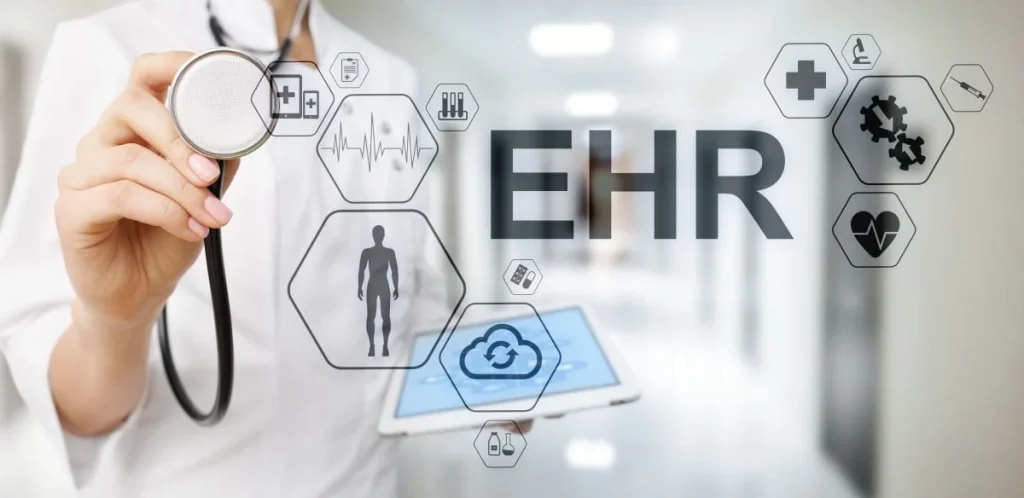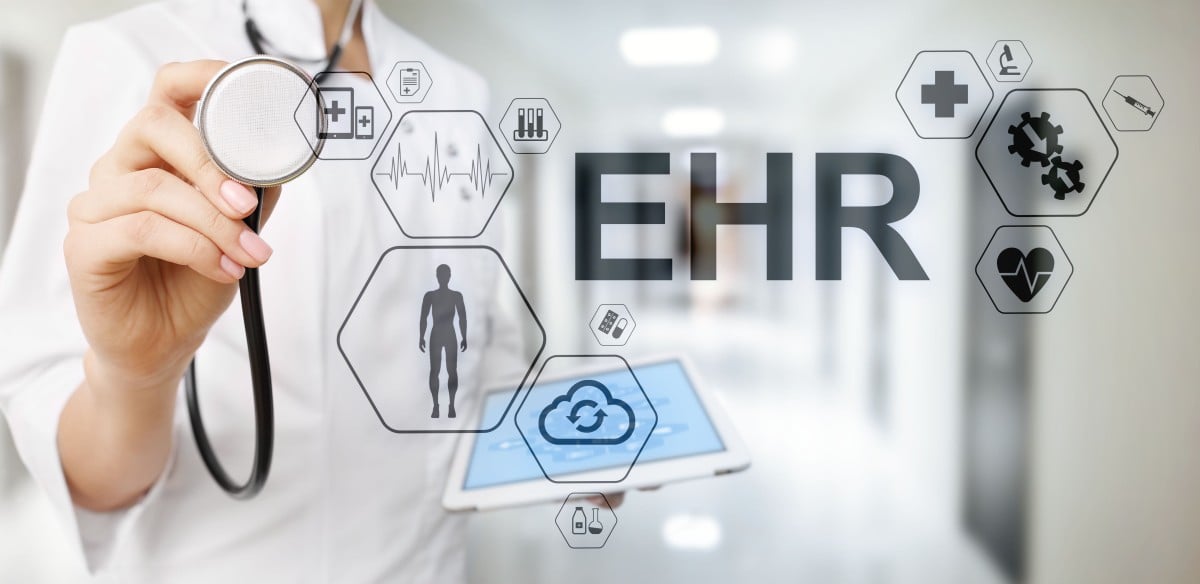

Electronic health record systems are a tremendous resource to have in your medical practice; gone are the days of dealing with miscommunications due to illegible handwriting or losing a patient’s file in a mountain of other files. With the advancements in technology, EHR systems demonstrate how utilizing technology can streamline your practice and the overall patient care journey. However, while there are pros to implementing an EHR system, there are also cons to consider. Keep reading to learn more about the pros and cons of electronic health records, plus what HIPAA regulations state.
What Is An EHR System?
An electronic health record (EHR) system is essentially a digital, centralized collection of patient information and medical history. An EHR system enables updates in real-time and provides a comprehensive, patient-centered experience to make information available immediately and securely to other authorized users and entities. EHR systems have the power to compile multiple factors pertaining to a patient’s wellness in one place which allows for a broader overview of the patient’s entire healthcare journey.
Electronic health record systems can include:
- Medical history
- Diagnoses
- Medications
- Treatment plans and notes
- Allergies
- Lab results
- And more!
Overall, EHR systems help streamline a patient’s overall healthcare journey and enable collaborative care across authorized providers and other medical practices.

HIPAA Policies for EHR
As defined by the Centers for Disease Control and Prevention (CDC), “The Health Insurance Portability and Accountability Act of 1996 (HIPAA) is a federal law that requires the creation of national standards to protect sensitive patient health information from being disclosed without the patient’s consent or knowledge.” Basically, this Act establishes protections for the use and sharing of personal health information and secures a patient’s privacy.
In 2009, the Health Information Technology for Economic and Clinical Health Act (HITECH) was signed into law and outlines technological requirements that align with HIPAA, such as encouraging the use of electronic health records to further protect patient information.
The HIPAA Security Rule, officially approved in 2003, also establishes a national set of security standards for safeguarding electronic personal health information (ePHI). This ensures that all authorized parties are following good cybersecurity practices when dealing with sensitive information. As defined by the Department of Health and Human Services, the Security Rule essentially declares that covered entities must:
- Ensure the confidentiality, integrity, and availability of all e-PHI they create, receive, maintain or transmit
- Identify and protect against reasonably anticipated threats to the security or integrity of the information
- Protect against reasonably anticipated, impermissible uses or disclosures
- Ensure compliance by their workforce
Maintaining HIPAA compliance includes maintaining compliance with the HIPAA Security Rule, which is vital since the healthcare industry is constantly under attack by digital criminals. Just in 2021, there were more than 700 healthcare breaches.
Pros and Cons of An EHR System
Let’s dive into the pros and cons of electronic health records for your medical practice:
Pro: Enhanced Collaboration
A recent study shows that 30% of seniors see an average of 5 providers each year; this means that multiple providers are delivering care to the same patient. With the implementation of an EHR system, each provider can see a real-time patient chart and update it with the most current information so that each provider is making decisions based on the patient’s present health status. This is a powerful perk of EHR systems since collaborative care means that a patient’s healthcare journey is addressed from a number of perspectives that are working with the same information.
Pro: Centralized Patient Information
With an electronic health record system, you won’t have to worry about losing pieces of paper with important patient information on them or trying to follow up on various reports from the lab—it’s all in one place! One of the biggest advantages to an EHR system is that all patient information is centralized so you don’t have to click into several different types of software or wait for a fax to come through in order to have the most updated information. This streamlines your workflow and enables you and your staff to work from the same file instead of gathering multiple threads.
Pro: Medicare Incentives for Meaningful Use
In 2011, CMS established the Medicare and Medicaid EHR Incentive Programs—now known as Meaningful Use—to encourage providers, hospitals, and other healthcare entities to adopt, implement, upgrade, and demonstrate meaningful use of certified electronic health record technology (CEHRT). Promoting the use of EHR systems strives to improve quality care outcomes and enhance patient care coordination.

Con: Liable for Cyber Attacks and Threats
It’s kind of ironic that EHR systems are more secure than traditional paper file systems yet require a different kind of security awareness since EHR systems are liable to virtual attacks and threats. Most EHR software and hardware systems have security features inherently built-in but this doesn’t mean that they’re properly installed or configured. Since it’s your EHR system and your patients count on you to keep their sensitive data private, it’s your responsibility to manage the cybersecurity threats and vulnerabilities that come along with it. That means you and your staff need to stay current on software updates and security patches for your system, plus conduct routine security risk analyses and other pertinent assessments.
Partner with NCG Medical to Streamline Your Practice!
EHR systems surely have their benefits and advantages to help your practice deliver quality patient care. However, there might be another part of your practice that needs some optimization: your medical billing and coding process. Want to streamline your overall revenue cycle management process? Partner with NCG Medical and let our experts efficiently handle your coding, billing, and claims process.{{cta('99954a8e-dee3-42c1-a2ac-cdab3c2b0f70')}}


